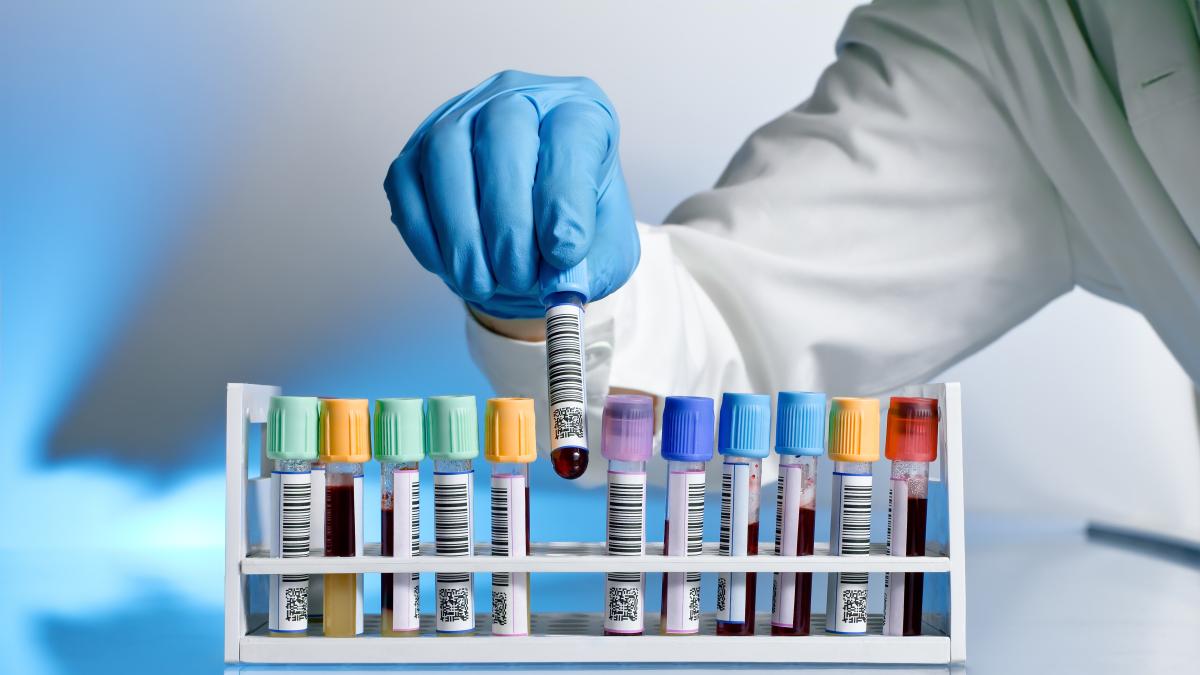of V. Mart.
A combination approved in Italy for adult patients with this aggressive, untreated blood cancer. A step forward after 20 years: the chances of healing with the first cycle of treatment are growing
For the first time in 20 years, a new treatment is available for front-line use in adult patients diagnosed with diffuse large B-cell lymphoma, the most common form of non-Hodgkin’s lymphoma. The Italian Medicines Agency has, in fact, granted reimbursement to an innovative drug (polatuzumab) in combination with chemotherapy in previously untreated patients after the results of the trials indicated that this strategy reduces the risk of disease progression by 27%. neoplasia, relapse or death compared to the current standard chemotherapy regimen.
For patients most at risk of relapses
Diffuse large B-cell lymphoma accounts for approximately 30% of all aggressive lymphomas, which have a more rapid clinical course and require timely treatment. It is a blood cancer characterized by rapid growth of B lymphocytes, a type of white blood cell (immune system cells), which is diagnosed in approximately 13,200 Italians every year.
Although a considerable percentage of patients respond positively to initial treatment, nearly four in 10 show no response or experience a relapse. And Aifa’s green light specifically concerns those who have a neoplasm at intermediate or high risk of recurrence (with the so-called prognostic index factor (IPI) 3-5.
The advantages of the new treatment
«Polatuzumab in combination with the R-CHP chemotherapy regimen (i.e. rituximab, cyclophosphamide, doxorubicin and prednisone) is the first therapy after approximately 20 years to have demonstrated a significant benefit in terms of disease progression-free survival for first-line treatment of diffuse large B-cell lymphoma – explains Maurizio Martelli, Full Professor and Director of Hematology at the University Hospital Policlinico Umberto I Sapienza University of Rome -. A step forward from the current standard therapy (R-CHOP, i.e. rituximab plus cyclophosphamide, doxorubicin, vincristine and prednisone) which could significantly improve outcomes and bring tangible benefits to those facing this aggressive lymphoma.” The benefits of the new combination were demonstrated by the results of the phase three POLARIX study, which enrolled 879 patients and indicated that people treated with polatuzumab plus R-CHP, at a two-year follow-up, receive much fewer subsequent therapies (systemic, radiotherapy, autotransplant and CAR-T) compared to those treated with R-CHOP.
Chance to heal
«This new therapy, arrived after decades of attempts, increases the chances of recovery of patients with the first line of treatment, thus reducing the need to resort to second and third line therapies, which are often very burdensome and demanding for patients and for the sustainability of the healthcare system – clarifies Antonello Pinto, Medical Director of the National Cancer Institute Pascale Foundation IRCCS of Naples -. It is therefore a therapeutic strategy that not only reduces the risk of relapse, but also contributes to preserving and improving the quality of life of patients.” To treat this neoplasm, even in cases where relapses occur, innovative therapies are making their way such as CAR-Ts, which are the patient’s T lymphocytes enhanced to attack tumor cells (already approved in our country), or bispecific antibodies , which bind T lymphocytes to the tumor cell, allowing their destruction.
Do you have a doubt or medical question?
Our doctors and specialists answer your questions on health topics
March 28, 2024 (modified March 28, 2024 | 3:16 pm)
© ALL RIGHTS RESERVED
Do you have a doubt or medical question?
Our doctors and specialists answer your questions on health topics
